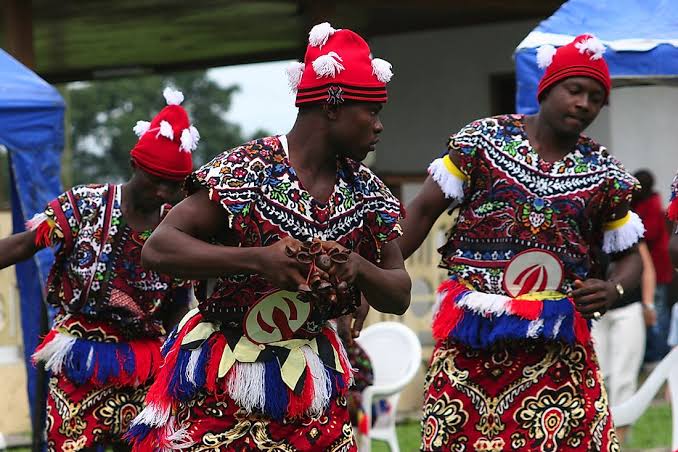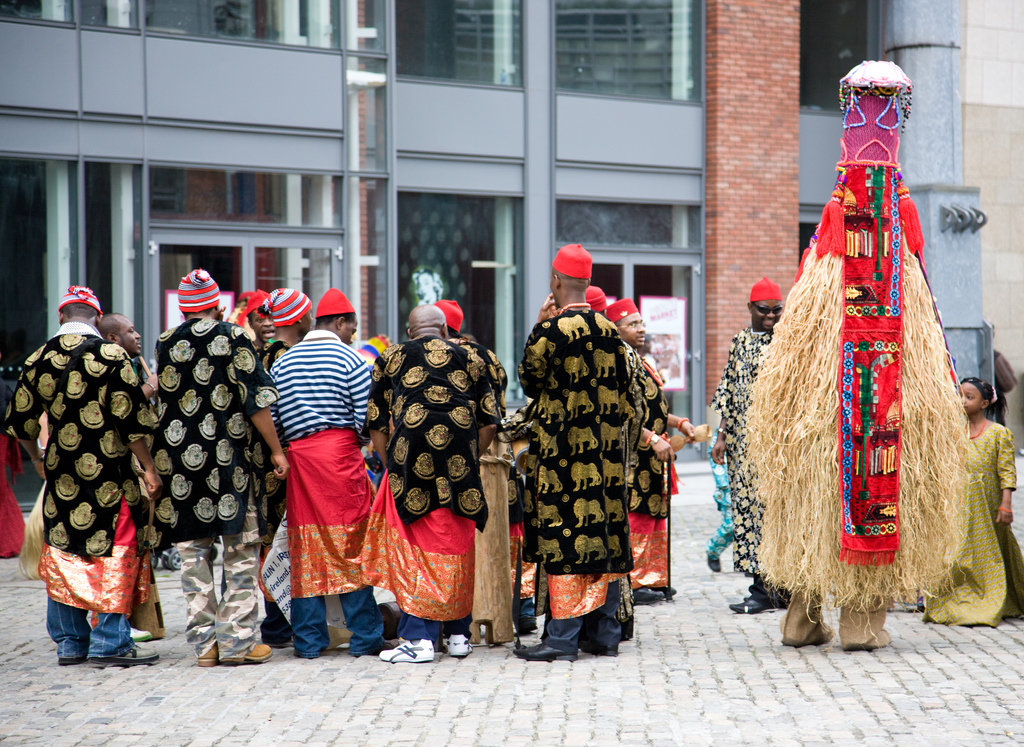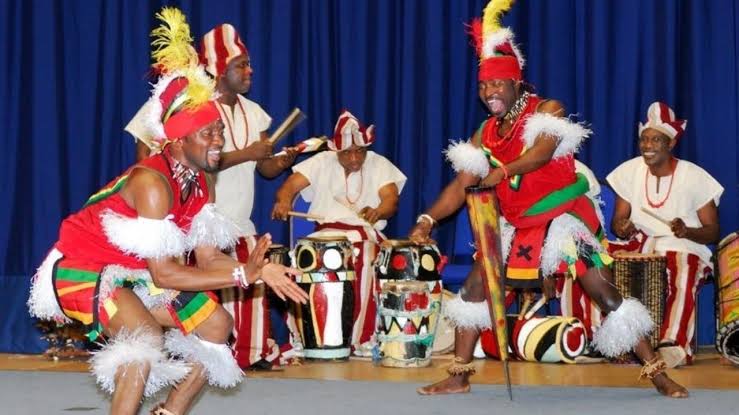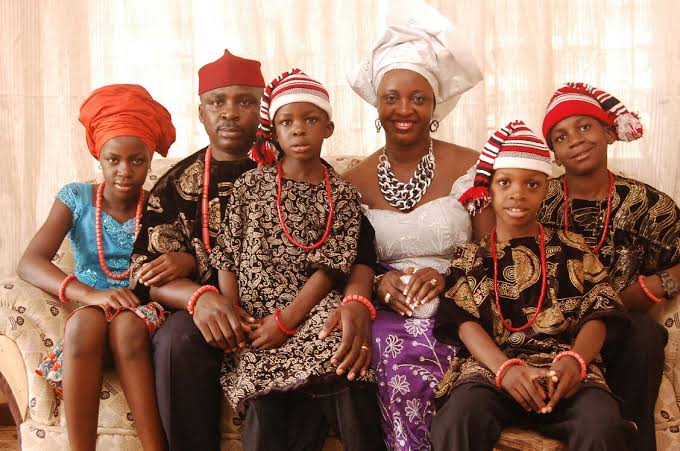Special Features
Exclusive: Discovering the rich heritage of the Igbo Ethnic Group

In this piece, News360 Nigeria explores the history, culture, traditions and beliefs of the Igbo ethnic group.
The Igbo people are one of the largest ethnic groups in Nigeria, predominantly found in the southeastern part of the country.
With a small concentration in the states of Delta and Rivers, they are primarily found in Abia, Anambra, Ebonyi, Enugu, and Imo.
Their population, which consists primarily of Christians, is approximately 44 million, making them the third largest ethnic group in Nigeria.
Igbos are highly educated, skilled in business, and a people who enjoy traveling to new places.
The Igbo people have a rich cultural heritage that encompasses traditions, beliefs, occupations, dressing styles, food preferences, and marriage practices that reflect their unique identity as an ethnic group in Nigeria.
Their history and customs continue to shape their way of life and contribute to the diversity of Nigerian culture.
History
The Igbo people are believed to have migrated from the ancient Nri Kingdom in present-day Anambra State.
They trace their origins to the Igbo-Ukwu civilization, which flourished between the 9th and 10th centuries.
The Igbo people developed a sophisticated culture with unique art, religion, and social structures.
In the 19th century, colonial rule led to the fragmentation of Igbo society, resulting in the Igbo becoming one of the largest diaspora populations in Africa.
By the mid-20th century, a sense of ethnic identity was strongly developed, and the Igbo-dominated Eastern region of Nigeria tried to unilaterally secede from Nigeria in 1967 as the independent nation of Biafra.
The Igbo people played a significant role in pre-colonial trade networks and were known for their democratic governance structures.
Location
The Igbo people are primarily located in the southeastern states of Nigeria, including Anambra, Imo, Enugu, Ebonyi, and Abia.
Language
The Igbos speak the Igbo language which is a part of the Niger-Congo language family. Its regional dialects are about 30 in number using a common literary language called Igbo izugbe.
These languages are intelligible among the larger “Igboid” cluster.
Population
The Igbo people are one of the largest ethnic groups in Nigeria, with a population estimated to be over 40 million people.
Occupation
Traditionally, the Igbo people were known for their agricultural practices, including farming of yam, cassava, and other crops.
They are also skilled traders and artisans, producing crafts such as pottery, weaving, and carving.
Trading is part of the Igbo people as they are known to have an excellent entrepreneurial spirit, they are great business people, and this drive creates a room for their success, hard work, and innovations.
Today, many Igbo people are engaged in various professions such as business, education, healthcare, and politics.
It is usually rare to find a lazy Igbo man or woman.
Beliefs
The Igbo people have a rich spiritual heritage that includes the worship of a supreme deity called Chukwu or Chineke, as well as belief in ancestral spirits and deities like Ala (earth goddess) and Amadioha (thunder god).
Ancestor worship is also an integral part of Igbo religion, with ancestors serving as intermediaries between the living and the spirit world.
Nowadays, Christianity and Islam are also practiced by many Igbo people.
Cultures
The Igbo culture is diverse and vibrant, with a strong emphasis on art, music, dance, storytelling, masquerades, and festivals.
The traditional Igbo society is organized around age grades, village councils, and secret societies like the Ozo.

The Igbo people have a musical style which involves the use of different percussion instruments such as the udu, which is made from a clay jug, an ekwe, which is formed from a hollowed log and the ogene, a hand bell designed from forged iron.
Other instruments include opi, a wind instrument similar to the flute, igba, and ichaka.
These instruments are used to make music for traditional occasions and are usually accompanied by different dances including the “Atilogwu and the Egedege” dance performances.

Group of Igbo dancers
Different Igbo masks are also used to accompany their traditional music. These can be made from wood, fabrics, iron and vegetation.
These masks are used mainly in social satires, religious rituals, secret society initiations and festivals. A few of these masks are the “Agbogho Mmuo and the Ijele masks”.
It is a norm in Igboland for children to respect their elders. Elders are addressed with special titles like “Dede or Mazi” especially when greeting or talking with elders.
Dressing
The traditional attire of the Igbo people includes wrappers for women and George wrappers or Isiagu shirts for men.

An Igbo family in their traditional attire
Beads, jewelry, and elaborate headgear are also worn during ceremonies and festivals. The red cap (fez) is a symbol of authority among Igbo men.
Delicacies
Traditionally, yam is a staple crop in Igboland, it is preferred as food of choice for ceremonial occasions.
Yams can be fried, roasted, boiled, or made into a potage with tomatoes and herbs.
Other foods such as cassava, plantain, vegetables, palm oil soup (banga soup), vegetable soups (egusi soup), and various meat dishes are also common among the Igbo people.
They also enjoy a variety of traditional snacks and drinks.
Marriage
Marriage among the Igbo people is a significant cultural institution that involves traditional rites and ceremonies.
The process of marrying a young Igbo woman is a long and elaborate one.
The process falls into four stages: asking the young woman’s consent, negotiating through a middleman, testing the bride’s character, and paying the bride wealth (dowry).
Marriages are often arranged by families, and bride price payments are common. Polygamy was traditionally practiced but has become less common in modern times.





















